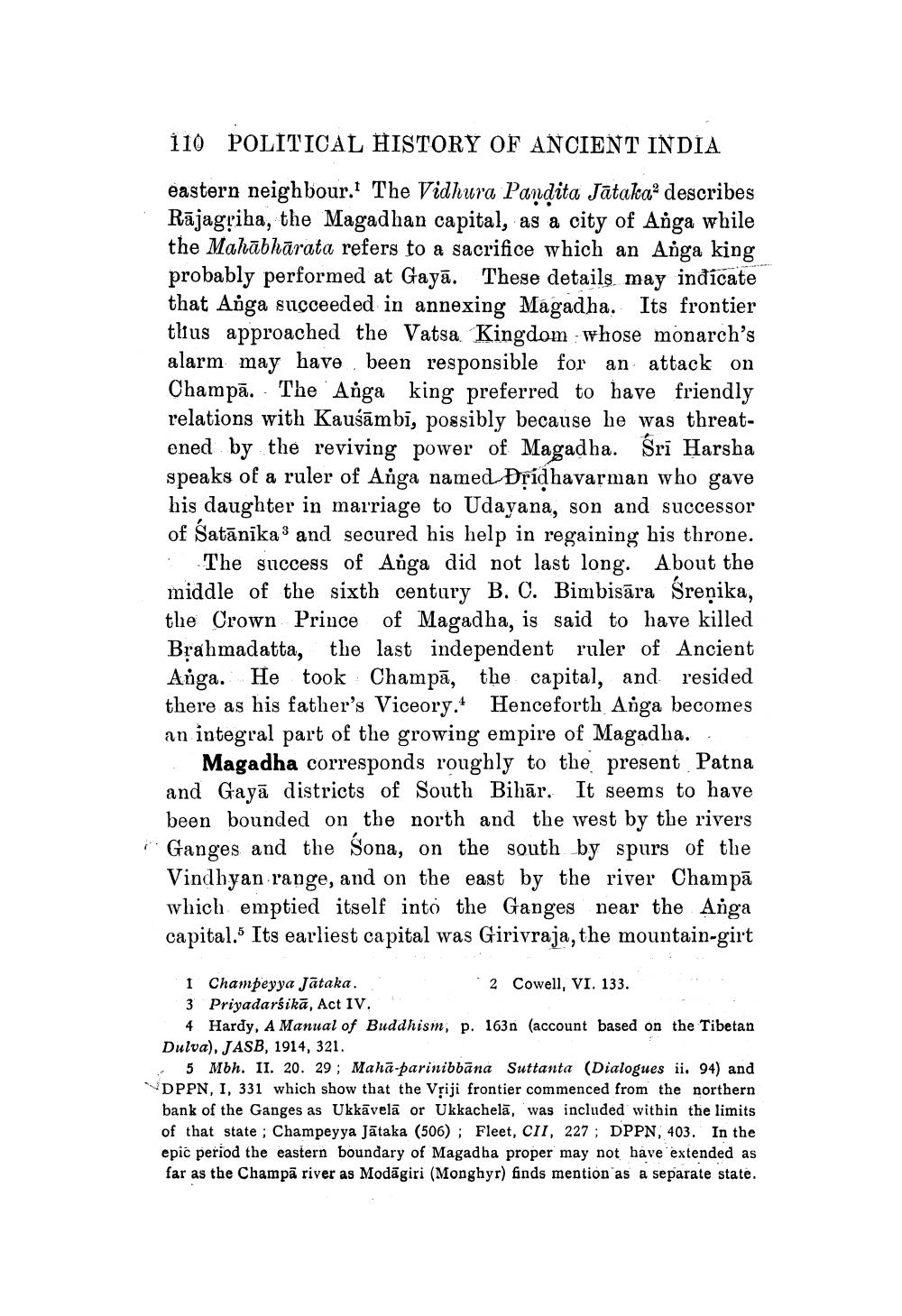________________
110 POLITICAL HISTORY OF ANCIENT INDÍA eastern neighbour. The Vidhura Pandita Jatakao describes Rājagriba, the Magadhan capital, as a city of Anga while the Mahābhārata refers to a sacrifice which an Anga king probably performed at Gayā. These details may inđícate that Anga succeeded in annexing Magadha. Its frontier tlus approached the Vatsa Kingdom - whose monarch's alarm may have been responsible for an attack on Champā. The Anga king preferred to have friendly relations with Kaušāmbi, possibly because he was threatened by the reviving power of Magadha. Sri Harsha speaks of a ruler of Anga named Dridhavarman who gave his daughter in marriage to Udayana, son and successor of Śatānikas and secured his help in regaining his throne. : The success of Anga did not last long. About the middle of the sixth century B. C. Bimbisāra Śreņika, the Crown Prince of Magadha, is said to have killed Brahmadatta, the last independent ruler of Ancient Anga. He took Champā, the capital, and resided there as his father's Viceory. Henceforth Anga becomes an integral part of the growing empire of Magadha..
Magadha corresponds roughly to the present Patna and Gayā districts of South Bihār. It seems to have been bounded on the north and the west by the rivers Ganges and the Sona, on the south by spurs of the Vindhyan range, and on the east by the river Champā which emptied itself into the Ganges near the Anga capital." Its earliest capital was Girivraja, the mountain-girt
1 Champeyya Jataka..
.2 Cowell, VI. 133. 3 Priyadarśikā, Act IV.
4 Hardy, A Manual of Buddhism, p. 163n (account based on the Tibetan Dulva). JASB, 1914, 321.
5 Mbh. II. 20. 29 ; Mahā-parinibbāna Suttanta (Dialogues ii. 94) and DPPN, I, 331 which show that the Vșiji frontier commenced from the northern bank of the Ganges as Ukkāvelā or Ukkachelā, was included within the limits of that state ; Champeyya Jātaka (506); Fleet, CII, 227 ; DPPN, 403. In the epic period the eastern boundary of Magadha proper may not have extended as far as the Champā river as Modāgiri (Monghyr) finds mention as a separate state.




